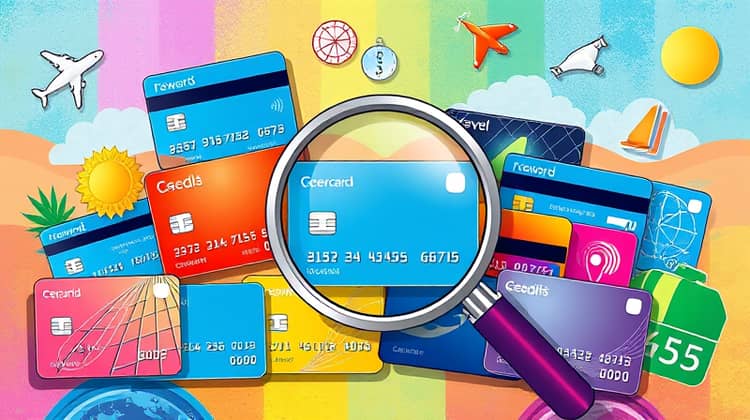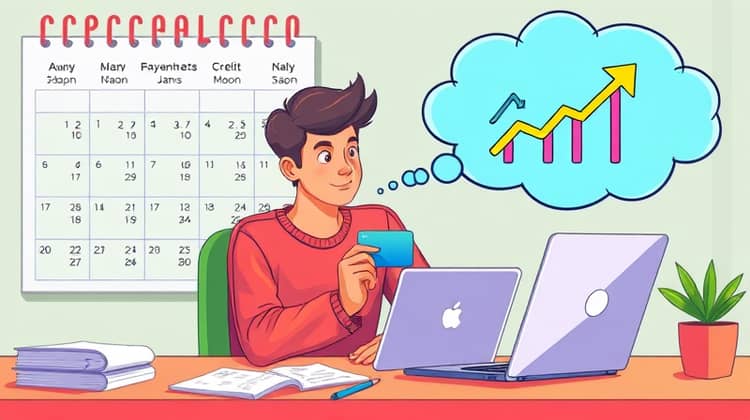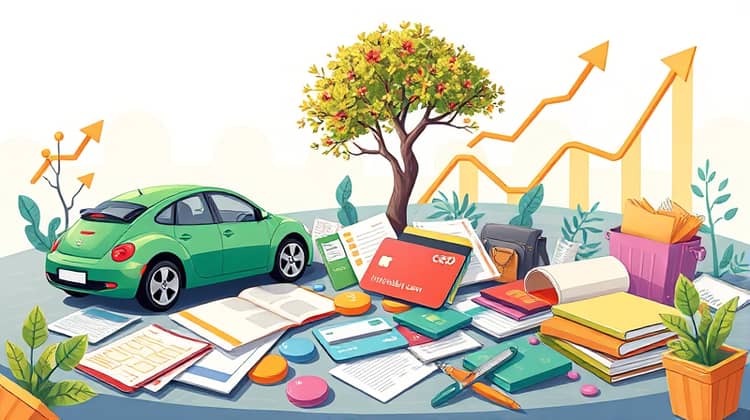Building credit is an essential step towards achieving financial stability and independence. One of the most effective methods for building credit is through the use of credit cards. A credit card, when used responsibly, can enhance your credit history, improve your credit score, and provide a variety of other financial benefits. This guide will help you understand the critical elements of building credit with credit cards, covering everything from understanding credit scores to avoiding common mistakes.
While the idea of using credit cards can be daunting for some, it is crucial to recognize that they are powerful financial tools when managed correctly. In this step-by-step guide, we will dive into how to effectively utilize credit cards to build your credit, including essential tips and best practices to follow along the way.
You'll learn why credit cards are beneficial for your financial future, the importance of maintaining low balances, and much more. By understanding and following the steps outlined in this guide, you will create a solid foundation for a successful credit journey.
1. Understanding Credit and Credit Scores

Credit is essential in today's financial landscape, affecting your ability to purchase a home, finance a car, and even secure job opportunities. At its core, credit is the trust that lenders can grant an individual to borrow money based on their credit history and behavior. A crucial aspect of credit is your credit score, which is a numerical representation of your creditworthiness.
Credit scores range from 300 to 850, and they are generally categorized as poor, fair, good, very good, or excellent. Several factors contribute to your credit score, including payment history, credit utilization, length of credit history, types of credit in use, and new credit inquiries. Knowing these factors can help you make informed decisions about managing your credit cards and loans.
Having a good credit score is essential, as it enables you to access better loan terms and interest rates and can save you thousands over a lifetime. Understanding how credit scores work will empower you to build your credit strategically. Meanwhile, monitoring your credit will help you identify any discrepancies or areas for improvement.
- Payment history: Paying bills on time is the most significant factor in determining your credit score.
- Credit utilization: This is the ratio of your credit card balances to credit limits. A lower ratio is better for your score.
- Length of credit history: A longer history often indicates reliability, so keeping old accounts can be beneficial.
- Types of credit: Having a mix of installment loans (like car loans) and revolving credit (like credit cards) can help your score.
- New credit: Opening too many new accounts in a short time can negatively impact your score.
By understanding these key components, you can take the necessary steps to improve your credit score and develop a strong credit profile that will serve you well in future borrowing.
2. Why Credit Cards Are a Powerful Tool

Credit cards are not just a means of payment; they are also valuable instruments for building your credit history. When you use a credit card and repay the balance each month, you demonstrate your ability to manage debt responsibly, which can significantly improve your credit score over time.
In addition to credit score improvement, credit cards offer other benefits, such as cashback rewards, travel points, and purchase protection. These rewards incentivize cardholders to use their cards for everyday purchases, allowing them to benefit financially while simultaneously building their credit.
Moreover, many credit cards come with additional features, such as fraud protection and emergency funds, giving users peace of mind. Understanding the multifaceted benefits of credit cards can help you leverage them more effectively in building financial stability.
- Build credit history: Regular usage and timely payments strengthen your credit profile.
- Earn rewards: Many credit cards offer cash back, travel perks, and discounts.
- Manage cash flow: Credit cards can provide temporary relief in cash flow issues, allowing for flexible payments.
Utilizing credit cards wisely can allow you to build a robust credit profile while enjoying valuable perks and benefits.
3. Choosing the Right Credit Card

When it comes to building credit with credit cards, selecting the right card for your needs is crucial. There are various types of credit cards available, each with its pros and cons. Understanding your financial habits and goals will help you make a well-informed decision.
Consider factors such as annual fees, interest rates, rewards programs, and any potential benefits associated with different cards. Some cards may be more suitable if you travel often, while others may be ideal for everyday purchases. Always read the fine print carefully to ensure you understand the terms and conditions.
4. How to Use a Credit Card to Build Credit

Once you've chosen the right credit card, the next step is to use it responsibly. This means making timely payments and keeping your balances low relative to your credit limit. Responsible usage will help you build and maintain a positive credit history over time.
A key strategy is to treat your credit card like a debit card—only spend what you can afford to pay off each month to avoid accruing interest and running up debt.
- Set a monthly budget for credit card spending and stick to it.
- Pay your bill in full each month to avoid interest charges.
- Monitor your credit utilization and keep it below 30% of your total credit limit.
Following these tips consistently will help you build a positive credit history and raise your credit score over time.
5. Avoiding Common Credit Card Mistakes

Common mistakes with credit cards can hinder your credit-building efforts. One of the most significant pitfalls is falling into high debt by overspending. People may underestimate how quickly small purchases can add up, leading to a substantial balance that becomes difficult to manage.
Another major mistake is missing payments, as late payments can severely impact your credit score. It's essential to set reminders for payment due dates and to create a manageable monthly budget to prevent overspending.
- Always pay your bill on time to avoid late fees and negative credit reporting.
- Do not max out your credit limit; aim to use less than 30% at all times.
- Avoid opening too many credit accounts in a short period, as multiple inquiries can hurt your score.
By avoiding these mistakes, you can keep your credit profile clean and also stave off unnecessary debt.
6. Monitoring Your Credit Score

Monitoring your credit score and credit reports is vital in your credit-building journey. Regularly checking your score allows you to track your progress and spot any inaccuracies or fraud that could harm your credit.
Utilizing free resources or services that offer credit score tracking can help you stay informed about your credit situation. Many credit card companies also provide free credit monitoring as part of their services.
Be proactive about checking your credit reports at least annually to ensure that all the information is correct. You are entitled to one free credit report each year from each of the major credit reporting agencies.
7. When to Ask for a Credit Limit Increase

As you build credit with your card, you may reach a point where you want to ask for a credit limit increase. This can be a beneficial move, as a higher limit can lower your credit utilization ratio if you manage the card well.
It's best to request a credit limit increase after demonstrating responsible usage over time, such as making timely payments and keeping low balances. It's advisable to wait at least six months after opening a card before making the request to show that you can handle your credit well.
8. Moving from Secured to Unsecured Cards

If you've started your credit-building journey with a secured credit card, you may want to transition to an unsecured card once you’ve established good credit habits.
- Check your credit score to ensure you qualify for an unsecured card.
- Apply for an unsecured card that fits your profile and offers rewards or benefits you want.
- Cancel your secured card only after your new unsecured card is active.
Making this transition can substantially increase your credit limit and improve your credit score, as unsecured cards often offer better terms.
9. Diversifying Your Credit Portfolio

Diversifying your credit portfolio is an important strategy for building a strong credit score. Having different types of credit, such as installment loans (like a car loan) and revolving credit (like credit cards), shows lenders that you can manage various forms of debt.
It's essential to approach diversification gradually. Only take on new credit types that you feel confident you can manage responsibly, as excessive borrowing can negatively impact your credit score.
10. The Long-Term Benefits of Building Credit

Building credit is not only about short-term gains; it has long-term benefits that can significantly improve your financial stability. A strong credit score can enable you to secure better loan rates and terms, ultimately saving you money in the long run.
Moreover, good credit opens up opportunities for larger purchases, such as buying a home or financing a new car with favorable interest rates. Additionally, excellent credit can provide you with more negotiating power and access to premium credit cards with lucrative rewards.














